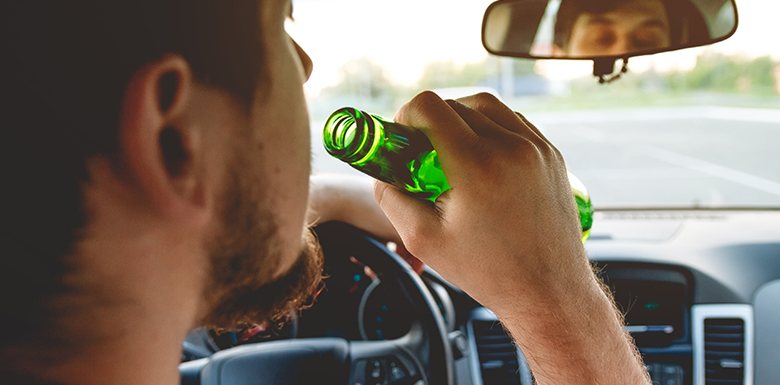What to do the Day After a DUI? 5 Steps to Take.

Were you recently released after being charged with drunk driving in Tampa for the first time?
You be unsure of what to do or ask. You might be worried about the potential consequences, which can include fines, jail, hours of community service, probation, driver’s license suspension, DUI school, and more. You also probably need to get your car our of impound and starting to look for legal help.
Here are five clear steps to take after a DUI arrest in Hillsborough County, FL, including calling Metcalf Falls, Criminal Defense Attorneys, P.A. at (813) 258-4800 for a free initial consultation.
Step 1: Get Out of Jail
When you’re arrested for a DUI, three things influence how long you’ll stay in jail.
Florida Statute §316.193 says you can’t be released from custody until:
- You are no longer under the influence of alcohol or any chemical substances;
- Your blood or breath alcohol level is lower than 0.05; or
- Eight hours have passed since you were arrested.
You or your loved one might have to spend the night in jail or be released in a few hours. It depends on the circumstances and how fast you can pay bail.
If you have the means, the process of posting bail usually starts after the person being charged is booked. This entails entering their personal information, mug shot, and fingerprints into the system. If the individual can post bail right away, they’ll be released and given information on when to appear in court.
In Hillsborough County, the standard bond for non-felony DUI’s is $500.
DUI First Appearance & Bail
If you or loved one aren’t released after a few hours, then you’ll remain in jail until your first appearance. At the court hearing, the judge will decide whether you have to get the funds for bail or whether the jail can release you on your own recognizance.
You can obtain a bail bond from a private agency. For a small upfront fee and collateral, the agency will post your bail. Always pay close attention to the agency’s interest and fees, though.
Step 2: Review the Paperwork from the Police
If you’re released before your first appearance, the police will give you paperwork that specifies the time and place of your arraignment. You must appear at this time, though our firm can appear in court for you if you hire us to handle your defense.
Keep track of these documents, and show them to your attorney. They will have important details about your arrest, specific charges, and arresting officers.
Step 3: Determine Whether You Can Drive
If you refused to submit to a chemical test, or your BAC was above .08, then you will face an Administrative License Suspension form the Department of Highway Safety and Motor Vehicles. That suspension is a separate penalty and there is a process to challenge that suspension that is entirely separate and distinct from your criminal case.
For a first-time DUI, if you’re over the age of 21 with an alcohol level of .08 or above (or you’re under the age of 21 with an alcohol level of .02 or above), you get a 6-month suspension. If it’s your second time being over the legal limit, it’s a 1-year suspension.
If it’s your first time refusing a breath, urine, or blood test, you get a 1-year suspension. If it’s your second refusal, it’s an 18-month suspension.
In Florida, your ALS is effective immediately. The police will take your driver’s license and issue you a Florida Uniform DUI Citation that acts as a temporary, 10-day driving permit assuming you’re eligible. If you receive the permit, you can use it to drive for 10-days following the date of your arrest. Within that 10-day period, you must either challenge the ALS or apply for a hardship license if you have no other alcohol related suspensions on your driving history.
If the police take away your license, talk with a lawyer right away. You only have 10 days after your arrest to apply for an administrative review of your license suspension.
Step 4: Locate Your Car
After a DUI arrest, the police might have impounded your vehicle. Getting it back is an administrative process—it’s not part of the criminal proceedings. You’ll need to find out from the police where your vehicle was towed. This might be part of the paperwork they give you upon your release.
You’ll have to pay towing, storage, and other fees to get it back, and you might not be able to drive it. If your license suspension is already in effect by the time, you’re able to get your car out of impound, ask a friend or relative to drive it home.
Step 5: Call a Lawyer
Once you’re home, it’s time to get serious about hiring a DUI defense attorney. It’s best to work with a criminal defense attorney with experience and prior success in DUI cases, rather than a friend or relative who primarily handles taxes or divorces.
Brett Metcalf is a Tampa native who began his career as a prosecutor. He tried over 5,000 cases, including DUIs, which gives him a unique perspective into the system.
Brett uses his extensive courtroom experience and compassion for his clients to pursue the best outcome available. What that looks like for you depends on the circumstances, but rest assured he’ll review the facts and develop a strategy to dismiss or lessen the impact of the charges.
You can reach Metcalf Falls, Criminal Defense Attorneys, P.A. through the online form or call (813) 258-4800 to request a free, initial consultation.
